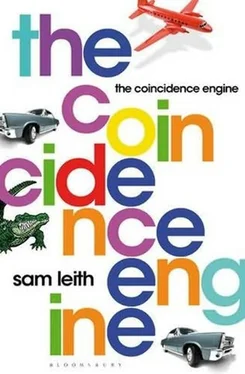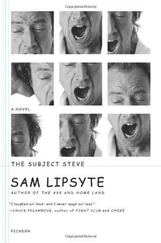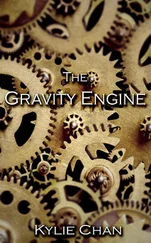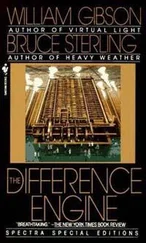The following morning, a third letter arrived. On the envelope it said: ‘To the Supposed Isla Holderness.’ She read it on the way to the airport.
‘You are not who you say you are. I am not who I was. Nobody is here,’ it began. Almost every other sentence contained a sarcastic intimacy – ‘my dearest “Isla” ’; ‘my trusted “Miss Holderness” ’ – as if parodying the man who had written her those private letters about his life over the past couple of months. The brusque kindness she remembered from the shack was gone. She found it unbearable.
It ended with a signature: not ‘Nicolas’ or even ‘NB’ this time, but ‘Fred Nieman’.
And so, fast-forward to Isla, walking round the final curve of the approach to Banacharski’s shack, feeling that she knows what she is going to find.
The fire had long gone out, doused in cold rain. But the smell of burning came through, wet burned wood. Droplets stood on melted plastic. The shack was gone – a black stain on the ground, a couple of jutting teeth of carbonised wood. Across the wet grass to either side were wisps and fragments of cinderated paper, the odd rag of sodden yellow in the fingers of the green.
The Calor canister under the wall of the shack had obviously gone. Half of it was there, its skin twisted and blackened. Its shrapnel had half dug turves out of the ground, and the grass was radially scorched on that side. The wooden floor of the shack was gone from the centre, where the fire seemed to have started. There were threads of rug towards the outside – where the stump of a piling emerged from poured concrete foundations. A stick of table leg was there.
The wind had blown the fire away up the hill, drying and burning the grass in patches up behind the shack. The beanstalks, the ones nearest the hut, were scorched but those towards Isla were intact, if more overgrown than when she had been here. The leaves were blowsy, the season long gone. Isla walked closer.
Too late, she thought. She had run out of time. He was gone.
She twisted a pod off one of the beanstalks, and thumbed it open. Inside, a broad bean – the only one full-size – sat in its velvety white cushion like a ring in a jeweller’s box.
She walked round the shack, looking for him. She thought of calling for him, but it felt wrong, somehow, to raise her voice. He was gone. She knew that. Not dead – she didn’t know why she was so sure of that, but she somehow felt confident of it – but gone. Beyond her help. Nobody could help him.
Her good Gore-Tex boots kept the wet out. She remembered him drawing his diagram: ‘And here is the map of Nicolas Banacharski in the world. And here is the map of Miss Isla Holderness in the world.’ She understood now why this was strangely comforting.
In among the bean shoots the chickens picked, pecking morosely at the wet grass, shivering their wings. Had he left them? Their henhouse was intact. She peeked into it. There was straw in there, and the hopper was dry, and full of grain.
Isla walked back down into town, and caused the police to be called. They came up, took a statement – Isla struggling a little with her French – filed a missing persons report, and late that evening told her she was free to go home. She spent the night in an auberge, and set off the following morning, early, resolute, sad: telling herself she had done everything she could and not believing it for a second.
When she arrived back in Cambridge, she came home to find that she had been burgled. Her laptop had gone, as well as her video recorder, the contents of her underwear drawer and medicine cabinet, and the nearly full bottle of vodka she had kept on the dresser. A pane of the front bay window had been smashed. A creditable but, finally, unsuccessful attempt had been made to remove the television.
Also, her jewellery box was gone – and with it, which somehow at that moment felt more important to her than even her own christening presents, Ana’s ring. Isla had sat down on her living-room floor and, before she called the police, cried for a long time.
Three days later, Isla’s house was burgled again. This time, it was Banacharski’s letters to her that went. It happened during the day, while she was at the library preparing a lecture. No glass was broken. Nothing of value was taken. Nobody was spotted at the scene.
Isla Holderness never saw Ana’s ring again. Her laptop, having been sold in a grimy pub on the outskirts of town, was eventually recovered by the police.
Its thief was seventeen-year-old Ben Collings, who was picked up not two weeks later while attempting to prise open the back door of the Co-op at 4 a.m., in the mindset of exuberant criminal incompetence that a gram and a half of his brother’s home-made amphetamine sulphate and a litre of white cider could be relied upon to produce. His fingerprints matched the ones he had left on the door of Isla’s fridge, and his teeth – as the Cambridgeshire Constabulary’s equivalent of the CSI lab was proud to report – precisely matched the profile of the two-thirds of a miniature Melton Mowbray pork pie that he had not stolen from inside it.
Mr Collings, as the PC who returned Isla’s laptop to her explained, was ‘a worthless little toerag’ of precisely the sort who formed the cop shop’s most loyal client base.
Collings had offloaded most of Isla’s possessions onto his big brother – a toerag of some seniority – who had in turn dispersed them among the pawn shops and market stalls of the town. Ana’s ring had ended up in an antique shop the quality of whose merchandise was belied by the tweeness of its name. Herbert Owse’s Antiquarian Omnium Gatherum stood on Burleigh Street, and was manned by a rubicund numismatist with a wild beard and a liking for checked shirts and moleskin waistcoats. His socks, though this is of scant relevance here, were held up with suspenders. His name was not Herbert Owse.
It was into this shop, however, that Alex Smart ducked while cutting down Burleigh Street one afternoon on his way from the cinema – where he had been spending the afternoon not working on his PhD and not thinking about the fact that he wasn’t working on his PhD – to the pub where he was meeting a friend in order to continue doing same.
Alex, who was not in the habit of browsing in antique shops and would not have been able to afford antiques even if he had, had gone in to escape a sudden shower of rain. The shower of rain proving unusually persistent, he was obliged to make a furious pretence at interest in the shop’s contents. Away he browsed, under the jovial eye of the proprietor, occasionally asking questions.
‘This piece,’ he said. ‘Eighteenth century, is it?’
‘Art deco,’ the proprietor replied.
‘Hm,’ said Alex, opening and closing a cabinet door. ‘Very good… hinges, it’s got. Are they original?’
‘Yes.’
‘Very good. I was thinking of something like that for my mum. Likes hinges, she does. How much is it?’
‘Eight hundred and seventy-five pounds.’
‘Oh. Oh my. Really?’
‘Yes.’
‘Well – bit more, you know. Embarrassing, but a bit more than I was actually thinking of, you know. Spending.’
The supposed Owse made brisk play of returning his attention to the notes he was making in a ledger with a stubby pencil. Alex walked the shop’s narrow aisles, keeping one eye on the rain through the bow window. The shop exuded a considerable aura of brownness: wooden floorboards, patches of curly-cornered carpet, brown cabinets and brown bookshelves and brown leather books.
Alex inspected an umbrella stand in which a number of pawky specimens shuffled their spokes. He read the spines of some of the old books, most of which were the sorts of things you might expect to be bought and sold by the yard rather than for their titles – volumes 4 to 8 of something called The Cyclopedia of Practical Agronomy ; the second volume of a Victorian translation of Don Quixote , with illustrated plates.
Читать дальше












